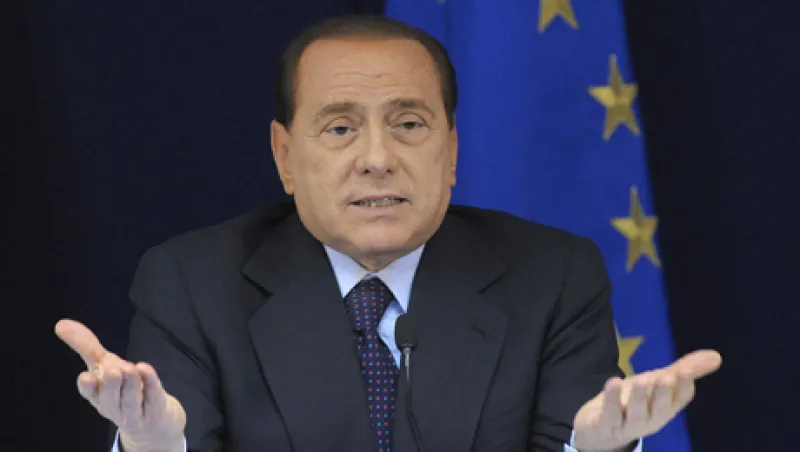The eurozone faced the most dangerous economic crisis in its history on Wednesday as fears about political paralysis in the country sent yields on Italian government bonds soaring to their highest point in the euro’s 12-year history.
The yield on the ten-year jumped to 7.5 percent – driving a coach and horses through the 7 percent mark widely seen as a possible point of no return for the world’s third largest debtor. In Greece and Ireland yields had risen rapidly after breaching 7 percent at earlier stages of the credit crunch – forcing eurozone institutions to bail them out to prevent disorderly defaults.
However, economists regard the Italian crisis as much more serious than any that have come before – including the severe and unresolved Greek drama – because Italy may be too large for the eurozone to bail out. Italian public debt is Euro 1.9 trillion, and analysts estimate that it needs to raise about Euro 700 billion over the next three years. This is far more money than the European Financial Stability Facility, the eurozone’s rescue fund, has available.
If Italy defaulted, many European banks that hold large amounts of Italian bonds could be plunged into dire financial straits. Moreover, a resulting wave of fear about the debts of other eurozone governments could send their bond yields soaring to unsustainable levels too.
John Higgins, senior markets economist at Capital Economics in London, said: “Wednesday’s surge in Italian government bond yields has catapulted the eurozone crisis into a dangerous new phase.” He added: “While Italy is considered to be too big to fail, she may be too big to save unless there is a major change of attitude towards resolving the crisis. Things could be about to turn very ugly.” Germany, which as Europe’s richest economy is key to any rescue plan, is reluctant to increase its financial commitment to other eurozone countries.
The trigger for the sudden leap in Italian yields - up almost a full percentage point on the day at one point – was Tuesday’s suggestion by premier Silvio Berlusconi that he could remain in power until next year, after first passing austerity measures designed to ease fears about Italy’s solvency.
Investors in Italian government bonds have come to see Berlusconi’s departure as key to any resolution of the government’s financial crisis. Berlusconi has been prime minister for eight of the past ten years, and during that time his promises to reform Italy’s inefficient economy have come to little. International investors’ faith in Berlusconi has weakened yet further since August, when in return for emergency bond-buying by the European Central Bank he had vowed to raise more tax money and cut spending. Little progress has been made in doing either.
Some analysts say Italy’s debt crisis arises not from inherently unsustainable debt levels. These analysts point to the fact that the Italian government runs a healthy primary surplus – which means that before allowing for interest rate payments its income is higher than its spending.
But investors are also disillusioned at the government’s inability to take steps to deal with Italy’s underlying problem – its slow economic growth, which is among the lowest in the world. Even before the credit crunch, its economy was growing at an average of only 1.5 percent a year – making it difficult to grow tax revenues. Critics of Italy argue that its economy runs on cronyism rather than meritocratic principles. They cite its notoriously closed professions – which they would like to see reformed to make Italy more dynamic.
Traders are anxiously waiting to see how markets will respond today to Wednesday’s frantic efforts by Italian politicians to reduce bond yields by speeding up reform. Giorgio Napolitano, Italy’s president, insisted that Berlusconi would resign soon. The present government hopes to reassure investors that it has a credible plan to reduce the debt by passing emergency economic measures as soon as Saturday.
The Italian FTSE MIB stock index sank 3.8 percent to end at 15,072, and the euro fell 2 percent against the dollar to $1.3551.






